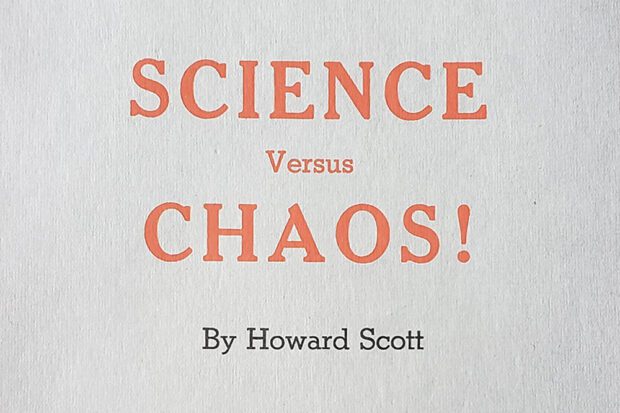
The debate between technocracy and democracy has long been a subject of scholarly debate, especially in the context of the United States and its approach to complex global challenges. Technocracy advocates governance by technical experts, in contrast to democracy, which emphasizes rule by the people.
In the United States, technocratic ideas gained prominence during the Great Depression, a period marked by widespread disillusionment with traditional political leadership.
The Technocracy Movement, led by figures like Howard Scott, proposed replacing elected officials with engineers and scientists who would manage national resources through scientifically grounded methods. Proponents argued that, free from political pressures, experts were better equipped to address complex economic challenges by applying scientific and technical knowledge to solve problems.
Furthermore, proponents of technocracy contend that this approach yields more efficient and effective policies, especially in areas such as climate change, healthcare and technological innovation. However, critics argue that technocracy can be elitist, concentrating power in a few people’s hands and marginalizing ordinary citizens’ voices. This concentration of power can undermine democratic values and accountability.
This analysis examines the growing influence of experts and technical professionals on policy making and its implications for democratic processes. It also explores the tensions and potential synergies between technocratic and democratic forms of governance.
Technocracy in America
In recent years, there has been a growing discourse on the role of technocracy in American governance. Elements of technocracy are evident in the United States through the influence of experts in policy making. Agencies such as the Environmental Protection Agency (EPA) and the Centers for Disease Control and Prevention (CDC) play crucial roles in shaping policies based on scientific research and data.
The idea of technocracy has evolved over time. Today, economics, public health and technology experts play significant roles in shaping policies. For example, during the Covid-19 pandemic, public health experts were central to decision-making processes. Modern technocracy manifests in various forms.
Advisory bodies composed of experts provide recommendations to elected officials. Regulatory agencies, such as the Federal Communications Commission (FCC) and the Food and Drug Administration (FDA), make decisions based on specialized knowledge. While these experts are not elected, their decisions can profoundly impact society. This raises questions about accountability and the democratic legitimacy of their authority.
Democracy in America
The United States operates as a representative democracy, where elected officials make decisions on behalf of the people. This system is grounded in the Constitution and emphasizes individual rights, the separation of powers and regular elections. The system ensures that governance reflects the people’s will and upholds individual rights.
Yet, democracy can be hindered by factors such as political polarization, misinformation and voter apathy. These challenges can lead to gridlock and ineffective governance.
Critics argue that American democracy is increasingly strained by issues such as voter disenfranchisement, gerrymandering and the growing influence of money in politics. These challenges risk undermining the core democratic ideal of equal representation and meaningful participation in decision-making by the people, for the people.
The United States exemplifies a hybrid system where technocratic elements coexist with democratic structures. While the president is elected, many policy decisions are influenced by expert agencies and advisory councils.
Technocracy offers the advantage of decisions based on expertise and data, potentially leading to more efficient and informed policies. However, it risks sidelining public input and democratic accountability. Democracy, on the other hand, ensures that all citizens have a voice in governance, but it can be susceptible to populism and inefficiencies.
The increased reliance on experts can enhance the quality of decision-making by incorporating specialized knowledge. However, it might also lead to a disconnect between the public and the decision-making process. Citizens might feel excluded from decisions that affect their lives, leading to decreased trust in institutions.
Any democratic society must have trust in its institutions to be stable and functional. People are more likely to obey the law, participate in civic affairs and accept political results—even if they disagree—when they trust institutions like the government, court, media and electoral processes.
Social cohesiveness is promoted by this trust, which also lessens the possibility of disturbances or general disenchantment. In contrast, a decline in institutional trust can harm democracy’s roots by fostering divisiveness, apathy and spreading misinformation.
Accountability, transparency and regular fulfillment of public commitments are necessary to preserve public trust.
Moreover, the concentration of power in the hands of experts can lead to policy decisions that disproportionately favor specific interests, potentially exacerbating existing inequalities or societal divisions.
Conclusion
Both technocracy and democracy have strengths and weaknesses. The U.S. system reflects an attempt to balance expert knowledge with democratic principles. Moving forward, it is essential to address the challenges within the democratic framework to ensure that governance is informed and representative.
The integration of technocratic elements into American governance presents both opportunities and challenges. While expertise can improve policy outcomes, it is crucial to maintain democratic principles to ensure that governance remains accountable and inclusive.
Tension arises when technocratic decisions conflict with democratic values. For instance, experts might recommend policies that are unpopular among the public but are deemed necessary for the greater good. Balancing expert recommendations with public opinion is challenging.
Furthermore, the growing importance of technology in government heightens worries about data privacy, surveillance and the possibility of technological elitism. Despite these conflicts, there are chances for cooperation.
Public participation in technocratic decision-making helps guarantee that policies are well-informed and represent democratic principles. The public’s interest and expertise can be reconciled through public participation in scientific research and policy formation.
The relationship between technocracy and democracy in the United States is complex and multifaceted. While tensions exist, these systems can potentially complement each other.
By fostering collaboration between experts and the public, the United States can develop governance models that are both efficient and democratic.
